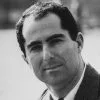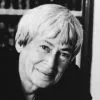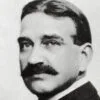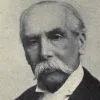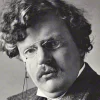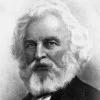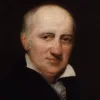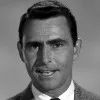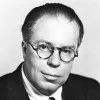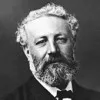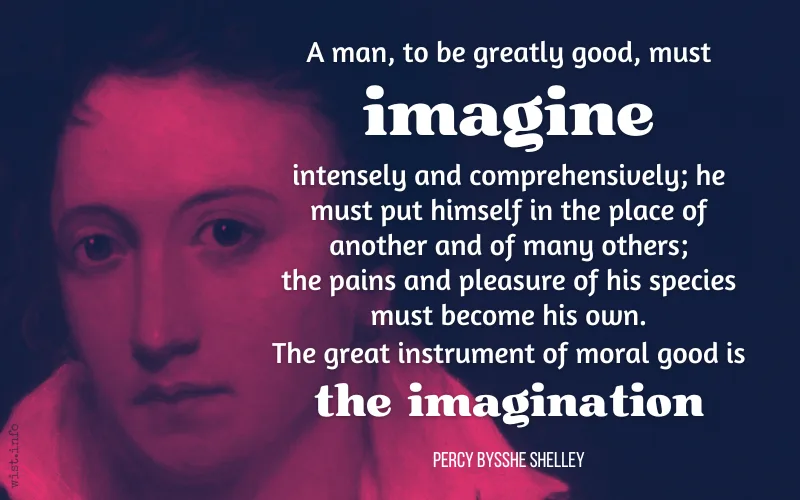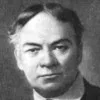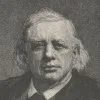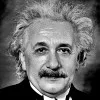SALLY: It’s a scientific fact that if you say “naked” three or more times, to any man, he has to cross his legs.
Steven Moffat (b. 1961) Scottish television writer, producer
Coupling, 02×09 “Naked” (2001-10-22)
(Source)
Quotations about:
imagination
Note not all quotations have been tagged, so Search may find additional quotes on this topic.
I don’t know whether you have ever seen a map of a person’s mind. Doctors sometimes draw maps of other parts of you, and your own map can become intensely interesting, but catch them trying to draw a map of a child’s mind, which is not only confused, but keeps going round all the time. There are zigzag lines on it, just like your temperature on a card, and these are probably roads in the island, for the Neverland is always more or less an island, with astonishing splashes of colour here and there, and coral reefs and rakish-looking craft in the offing, and savages and lonely lairs, and gnomes who are mostly tailors, and caves through which a river runs, and princes with six elder brothers, and a hut fast going to decay, and one very small old lady with a hooked nose. It would be an easy map if that were all, but there is also first day at school, religion, fathers, the round pond, needle-work, murders, hangings, verbs that take the dative, chocolate pudding day, getting into braces, say ninety-nine, threepence for pulling out your tooth yourself, and so on, and either these are part of the island or they are another map showing through, and it is all rather confusing, especially as nothing will stand still.
Of course the Neverlands vary a good deal. John’s, for instance, had a lagoon with flamingoes flying over it at which John was shooting, while Michael, who was very small, had a flamingo with lagoons flying over it. John lived in a boat turned upside down on the sands, Michael in a wigwam, Wendy in a house of leaves deftly sewn together. John had no friends, Michael had friends at night, Wendy had a pet wolf forsaken by its parents, but on the whole the Neverlands have a family resemblance, and if they stood still in a row you could say of them that they have each other’s nose, and so forth. On these magic shores children at play are for ever beaching their coracles. We too have been there; we can still hear the sound of the surf, though we shall land no more.J. M. Barrie (1860-1937) Scottish novelist and dramatist [James Matthew Barrie]
Peter and Wendy, ch. 1 “Peter Breaks Through” (1911)
(Source)
Not included in the play.
So too with our minds. If we do not keep them busy with some particular subject which can serve as a bridle to rein them in, they charge ungovernably about, ranging to and fro over the wastelands of our thoughts. Then, there is no madness, no raving lunacy, which such agitations do not bring forth.
[Ainsi est-il des esprits, si on ne les occupe à certain sujet, qui les bride & contraigne, ils se jettent desreglez, par-ci par là, dans le vague champ des imaginations. Et n’est follie ny réverie, qu’ils ne produisent en cette agitation.]
Michel de Montaigne (1533-1592) French essayist
Essays, Book 1, ch. 8 “Of Idleness [De l’Oisiveté]” (1572) (1.8) (1595) [tr. Screech (1987)]
(Source)
This essay was in the 1st ed. (1595); though the essay was revised for later editions, this text was not. The Essays themselves were begun to cure the melancholy and unrestrained thoughts caused by Montaigne's moving to his country estates, retiring from public life, and isolating himself in the château library for some time. This essay speaks to that experience.
(Source (French)). Alternate translations:So is it of minds, which except they be busied about some subject, that may bridle and keepe them under, they will here and there wildely scatter themselves through the vaste field of imaginations. And there is no follie, or extravagant raving, they produce not in that agitation.
[tr. Florio (1603)]So it is with Wits, which if not applyed to some certain Study that may fix and restrain them, run into a thousand Extravagancies, and are eternally roving here and there in the inextricable Labyrinth of restless Imagination. In which wild and irregular Agitation, there is no Folly, nor idle Fancy they do not light upon.
[tr. Cotton (1686)]So it is with our minds, which, if not applied to some particular subject to check and restrain them, rove about confusedly in the vague expanse of imagination. In which agitation there is no folly nor idle fancy which they do not create.
[tr. Friswell (1868)]So it is with minds, which if not applied to some certain study that may fix and restrain them, run into a thousand extravagances, eternally roving here and there in the vague expanse of the imagination -- in which wild agitation there is no folly, nor idle fancy they do not light upon.
[tr. Cotton/Hazlitt (1877)]So it is with our minds. If we do not apply them to some sort of study that will fix and restrain them, they will drift into a thousand extravagances, and will sternly run here and there in an inextricable labyrinth of restless imagination. In this wild and irregular agitation there is no folly nor idle fancy they do not touch upon.
[tr. Rector (1899)]So it is with our minds: if we do not keep them occupied with a distinct subject, which curbs and restrains them, they run aimlessly to and fro, in the undefined field of imagination. And there is no folly or fantasy to which they do not give birth in this agitation.
[tr. Ives (1925)]So it is with minds. Unless you keep them busy with some definite subject that will bridle and control them, they throw themselves in disorder hither and yon in the vague field of imagination. And there is no mad or idle fancy that they do not bring forth in this agitation.
[tr. Frame (1943)]So it is with our minds. If we do not occupy them with some definite subject which curbs and restrains them, they rush wildly to and fro in the ill-defined field of the imagination. And there is no folly or fantasy that they will not produce in this restless state.
[tr. Cohen (1958)]If [minds] have no object to busy themselves with, something to check and restrain them, they will run free and ramble through the open field of their imagination. And in this state of excitement, minds will come up with all kinds of foolishness and fantasies.
[tr. HyperEssays (2025)]
Conflict acting on intelligence creates imagination. Faced with conflict, creatures are forced to imagine what will happen, where the next threat will come from. If there has never been conflict, imagination never develops. Wits arise in answer to danger, to pain, to tragedy. No one ever got smarter eating easy apples.
LIBERTY, n. One of Imagination’s most precious possessions.
Ambrose Bierce (1842-1914?) American writer and journalist
“Liberty,” The Cynic’s Word Book (1906)
(Source)
Included in The Devil's Dictionary (1911). Originally published in the "Devil's Dictionary" column in the San Francisco Wasp (1886-08-14).
For me, reason is the natural organ of truth; but imagination is the organ of meaning. Imagination, producing new metaphors or revivifying old, is not the cause of truth, but its condition.
C. S. Lewis (1898-1963) English writer, literary scholar, lay theologian [Clive Staples Lewis]
“Bluspels and Flalansferes: A Semantic Nightmare” (1936), Rehabilitations and Other Essays (1939)
(Source)
First given as a lecture at Manchester University.
This world is but canvas to our imaginations.
Henry David Thoreau (1817-1862) American philosopher and writer
A Week on the Concord and Merrimack Rivers, “Wednesday” (1849)
(Source)
KYLE: It’s all real. Think about it. Haven’t Luke Skywalker and Santa Claus affected your lives more than most real people in this room? I mean, whether Jesus is real or not, he’s had a bigger impact on the world than any of us have. And the same could be said of Bugs Bunny and Superman and Harry Potter. They’ve changed my life, changed the way I act on the Earth. Doesn’t that make them kind of “real”? They might be imaginary, but they’re more important than most of us here. And they’re all gonna be around long after we’re dead. So in a way, those things are more realer than any of us.
Trey Parker (b. 1969) American actor, animator, writer, musician [Randolph Severn "Trey" Parker III]
South Park, 11×12 “Imaginationland Episode III” (2007-10-31) [with Matt Stone, Brian Graden]
(Source)
Obviously the facts are never just coming at you but are incorporated by an imagination that is formed by your previous experience. Memories of the past are not memories of facts but memories of your imaginings of the facts.
Philip Roth (1933-2008) American novelist and short-story writer
The Facts: A Novelist’s Autobiography, Introductory Letter to Nathan Zuckerman (1988)
(Source)
Zuckerman was Roth's literary alter ego, and narrator of several of Roth's books.
At some time in the future, if the human mind becomes something totally different from what it is now, we may learn to separate literary creation from intellectual honesty. At present we know only that the imagination, like certain wild animals, will not breed in captivity.
George Orwell (1903-1950) English writer [pseud. of Eric Arthur Blair]
“The Prevention of Literature,” Polemic (1946-01)
(Source)
On the suppression of independent writers and writing in totalitarian statues, such as Germany and the Soviet Union, and the apathy of Western intelligentsia about it.
If you cannot or will not imagine the results of your actions, there’s no way you can act morally or responsibly. Little kids can’t do it; babies are morally monsters—completely greedy. Their imagination has to be trained into foresight and empathy.
Ursula K. Le Guin (1929-2018) American writer
Interview (2005-12-17), “The Magician,” by Maya Jaggi, The Guardian
(Source)
Thanks to the flattering paint brush of the imagination, the cold skeleton of reason takes on rosy, living flesh. Through the imagination, the sciences flourish and grow in beauty; it makes woods speak, echoes sigh, marble breathe, and rocks cry; all inanimate bodies take on life. It is imagination once again that adds the piquant allure of sensuality to the tenderness of an amorous heart. Imagination causes the germination of sensuality in the dusty studies of philosophers and pedants. Finally, imagination forms learned men as well as orators and poets.
[Par elle, par son pinceau flatteur, le froid squelette de la raison prend des chairs vives et vermeilles; par elle les sciences fleurissent, les arts s’embellissent, les bois parlent, les échos soupirent, les rochers pleurent, le marbre respire, tout prend vie parmi les corps inanimés. C’est elle encore qui ajoute à la tendresse d’un cœur amoureux le piquant attrait de la volupté; elle la fait germer dans le cabinet du philosophe, et du pédant poudreux; elle forme enfin les savants comme les orateurs et les poëtes.]
Julien Offray de La Mettrie (1709-1751) French physician and philosopher
L’homme machine [Man a Machine] (1747) [tr. Watson/Rybalka (1994)]
(Source)
(Source (French)). Alternate translations:By [imagination's] flattering pencil the cold skeleton of abstract reason assumes living and vermillion flesh; by it the sciences flourish, arts are embellished, woods speak, echoes sigh, rocks weep, marbles breaths, and all the inanimate bodies are suddenly inspired with life. 'Tis it that adds to the tenderness of an amourous heart the poignant taste of pleasures; it makes love bud in the cabinet of the philosopher and dusty pedant: in fine it forms the scientific men as well as orators, and poets.
[ed. Owen (1746)]By the imagination, by its flattering brush, the cold skeleton of reason takes on living and ruddy flesh, by the imagination the sciences flourish, the arts are adorned, the wood speaks, the echoes sigh, the rocks weep, marble breathes, and all inanimate objects gain life. It is imagination again which adds the piquant charm of voluptuousness to the tenderness of an amorous heart; which makes tenderness bud in the study of the philosopher and of the dusty pedant, which, in a word, creates scholars as well as orators and poets.
[tr. Bussey (1912)]Thanks to the imagination, to its flattering touch, the cold skeleton of reason acquires living rosy flesh; thanks to it the sciences flourish, the arts are embellished, woods speak, echoes sign, rocks weep, marble breaths and all inanimate objects come to life. It is, again, the imagination that adds to the tenderness of a loving heart the spicy attraction of sensuality. It makes it flower in the study of the philosopher or the dry-as-dust pedant, and it moulds scientists as well as orators and poets.
[tr. Thomson (1996); Machine Man]
And so our kind of imagination is quite a difficult game. One has to have the imagination to think of something that has never been seen before, never been heard of before. At the same time the thoughts are restricted in a strait jacket, so to speak, limited by the conditions that come from our knowledge of the way nature really is. The problem of creating something which is new, but which is consistent with everything which has been seen before, is one of extreme difficulty.
Richard Feynman (1918-1988) American physicist
The Feynman Lectures on Physics, Vol. 2, ch. 20 “Solutions of Maxwell’s Equations in Free Space,” sec. 20–3 “Scientific Imagination” (1964)
(Source)
The whole question of imagination in science is often misunderstood by people in other disciplines. They try to test our imagination in the following way. They say, “Here is a picture of some people in a situation. What do you imagine will happen next?” When we say, “I can’t imagine,” they may think we have a weak imagination. They overlook the fact that whatever we are allowed to imagine in science must be consistent with everything else we know: that the electric fields and the waves we talk about are not just some happy thoughts which we are free to make as we wish, but ideas which must be consistent with all the laws of physics we know. We can’t allow ourselves to seriously imagine things which are obviously in contradiction to the known laws of nature.
Richard Feynman (1918-1988) American physicist
The Feynman Lectures on Physics, Vol. 2, ch. 20 “Solutions of Maxwell’s Equations in Free Space,” sec. 20–3 “Scientific Imagination” (1964)
(Source)
It is very good to copy what one sees; it is much better to draw what you can’t see any more but is in your memory. It is a transformation in which imagination and memory work together. You only reproduce what struck you, that is to say the necessary. There your memories and your fantasy are freed from the tyranny exercised by nature.
[C’est très bien de copier ce qu’on voit, c’est beaucoup mieux de dessiner ce que l’on ne voit plus que dans son mémoire. C’est une transformation pendant laquelle l’ingéniosité collabore avec la mémoire. Vous ne reproduisez que ce qui vous a frappé, c’est-à-dire le nécessaire. Là, vos souvenirs et votre fantaisie sont libérés de la tyrannie qu’exerce la nature.]
Edgar Degas (1834-1917) French Impressionist artist [b. Hilaire-Germain-Edgar De Gas]
Quoted in Georges Jeanniot, “Souvenirs sur Degas [Memories of Degas],” La Revue Universelle (1933-10-15)
(Source)
The quotation is often cited to Maurice Sérullaz, L'univers de Degas (1979), but Sérullaz says he is requoting Degas from Swiss-French Impressionist painter Pierre-Georges Jeanniot.
What we really mean by free will, of course, is the visualizing of alternatives and making a choice between them. In my view, which not everyone shares, the central problem of human consciousness depends on this ability to imagine.
Jacob Bronowski (1908-1974) Polish-English humanist and mathematician
The Origins of Knowledge and Imagination, ch. 1 “The Mind as an Instrument for Understanding” (1978)
(Source)
All human accomplishment has the same origin, identically. Imagination is a force of nature. Is this not enough to make a person full of ecstasy? Imagination, imagination, imagination. It converts to actual. It sustains, it alters, it redeems!
Saul Bellow (1915-2005) Canadian-American writer
Henderson the Rain King, ch. 18 [King Dahfu] (1959)
(Source)
Some of my youthful readers are developing wonderful imaginations. This pleases me. Imagination has brought mankind through the Dark Ages to its present state of civilization. Imagination led Columbus to discover America. Imagination led Franklin to discover electricity. Imagination has given us the steam engine, the telephone, the talking-machine, and the automobile, for these things had to be dreamed of before they became realities. So I believe that dreams — day dreams, you know, with your eyes wide open and your brain machinery whizzing — are likely to lead to the betterment of the world. The imaginative child will become the imaginative man or woman most apt to create, to invent, and therefore to foster civilization. A prominent educator tells me that fairy tales are of untold value in developing imagination in the young. I believe it.
L. Frank Baum (1856-1919) American author [Lyman Frank Baum]
The Lost Princess of Oz, Introduction (1917)
(Source)
A little knowledge is said to be a dangerous thing, but it is not dangerous to the imagination. Knowledge is to the imagination what fuel is to flame. A little feeds it; a great deal extinguishes it.
Imagination is a good servant, and a bad master.
Agatha Christie (1890-1976) English writer
The Mysterious Affair at Styles, ch. 5 [Poirot] (1916, pub. 1920)
(Source)
Poirot, chiding Hastings' unfounded speculations.
To fight a real sorrow, a real loss, a real insult, a real disillusion, a real treachery was infinitely less difficult than to spend a night without sleep struggling with ghosts. The imagination is far better at inventing tortures than life because the imagination is a demon within us and it knows where to strike, where it hurts.
The gift of imagination is by no means an exclusive property of the artist; it is a gift we all share; to some degree or other all of us, all of you, are endowed with the powers of fantasy.
Leonard Bernstein (1918-1990) American conductor, composer, author, music lecturer, pianist
Commencement Speech, Johns Hopkins University (1980-05-30)
(Source)
Collected in Findings: Fifty Years of Meditations on Music, Part 4 (1982).
Old age is a special problem for me because I’ve never been able to shed the mental image I have of myself — a lad of about nineteen.
E. B. White (1899-1985) American author, critic, humorist [Elwyn Brooks White]
“E. B. White: Notes and Comment by Author,” interview by Israel Shenker, New York Times (1969-07-11)
(Source)
On his 70th birthday.
Didn’t Woody Allen say that all literature was a footnote to Faust? Perhaps all adolescence is a dialogue between Faust and Christ. We tremble on the brink of selling that part of ourselves that is real, unique, angry, defiant and whole for the rewards of attainment, achievement, success and the golden prizes of integration and acceptance; but we also in our great creating imagination, rehearse the sacrifice we will make: the pain and terror we will take from others’ shoulders; our penetration into the lives and souls of our fellows; our submission to willingness to be rejected and despised for the sake of truth and love and, in the wilderness, our angry rebuttals of the hypocrisy, deception and compromise of a world which we see to be so false. There is nothing so self-righteous nor so right as an adolescent imagination.
Stephen Fry (b. 1957) British actor, writer, comedian
Moab Is My Washpot, “Falling In,” ch. 6 (1997)
(Source)
Imaginary evil is romantic and varied; real evil is gloomy, monotonous, barren, boring. Imaginary good is boring; real good is always new, marvelous, intoxicating.
Simone Weil (1909-1943) French philosopher
Gravity and Grace [La Pesanteur et la Grâce], “Evil” (1947) [ed. Thibon] [tr. Crawford/von der Ruhr (1952)]
(Source)
Speaking of the portrayal of good and evil in literature.
The suggestion that the world could be completely other than it is always annoys those who are content with the way things are. Stories of imagination tend to upset those without one. Rulers are suspicious of new worlds where their writ does not run. Jailers don’t like escapism.
Terry Pratchett (1948-2015) English author
Foreword to David Pringle, ed., The Ultimate Encyclopedia of Fantasy (1999)
(Source)
Often just given as "Stories of imagination tend to upset those without one."
Although our intellect always feels itself urged towards clearness and certainty, still our mind often feels itself attracted by uncertainty. Instead of threading its way with the understanding along the narrow path of philosophical investigations and logical conclusions, in order almost unconscious of itself, to arrive in spaces where it feels itself a stranger, and where it seems to part from all well known objects, it prefers to remain with the imagination in the realms of chance and luck.
[Obgleich sich unser Verstand immer zur Klarheit und Gewißheit hingedrängt fühlt, so fühlt sich doch unser Geist oft von der Ungewißheit angezogen. Statt sich mit dem Verstande auf dem engen Pfade philosophischer Untersuchung und logischer Schlußfolgen durchzuwinden, um, seiner selbst sich kaum bewußt, in Räumen anzukommen, wo er sich fremd fühlt, und wo ihn alle bekannten Gegenstände zu verlassen scheinen, weilt er lieber mit der Einbildungskraft im Reiche der Zufälle und des Glücks.]
Karl von Clausewitz (1780-1831) Prussian soldier, historian, military theorist
On War [Vom Kriege], Book 1, ch. 1 “What Is War? [Was ist der Krieg?],” § 22 (1.1.22) (1832) [tr. Graham (1873)]
(Source)
(Source (German)). Alternate translations:Although our intellect always feels itself urged toward clarity and certainty, our mind still often feels itself attracted by uncertainty. Instead of threading its way with the intellect along the narrow path of philosophical investigation and logical deduction, in order almost unconsciously, to arrive in spaces where it finds itself a stranger and where all familiar objects seem to abandon it, it prefers to linger with imagination in the realms of chance and luck.
[tr. Jolles (1943)]Although our intellect always longs for clarity and certainty, our nature often finds uncertainty fascinating. It prefers to day-dream in the realms of chance and luck rather than accompany the intellect on its narrow and tortuous path of philosophical enquiry and logical deduction only to arrive -- hardly knowing how -- in unfamiliar surroundings where all the usual landmarks seem to have disappeared.
[tr. Howard & Paret (1976)]
Try to remember this: what you project
Is what you will perceive; what you perceive
With any passion, be it love or terror,
May take on whims and powers of its own.
Few people can say of themselves that they are free of the belief that this world which they see around them is in reality the work of their own imagination. Are we pleased with it, proud of it, then?
Isak Dinesen (1885-1962) Danish writer [pseud. of Karen Christence, Countess Blixen]
“The Deluge at Norderney,” Seven Gothic Tales [Kasparson] (1934)
(Source)
A nation that silences or intimidates original minds is left only with unoriginal minds and cannot hope to hold its own in the competition of peace or of war.
Henry Steele Commager (1902-1998) American historian, writer, activist
“Free Enterprise in Ideas,” Freedom, Loyalty, Dissent (1954)
(Source)
Originally published in the Saturday Review (1952), based on a speech to the Advertising Council's American Round Table, New York City (1951).
Many of our disappointments and much of our unhappiness arise from our forming false notions of things and persons. We strangely impose upon ourselves; we create a fairyland of happiness. Fancy is fruitful and promises fair, but, like the dog in the fable, we catch at a shadow, and when we find the disappointment, we are vexed, not with ourselves, who are really the imposters, but with the poor, innocent thing or person of whom we have formed such strange ideas.
Abigail Adams (1744-1818) American correspondent, First Lady (1797-1801)
Letter to Hannah Lincoln (5 Oct 1761)
(Source)
A great wind is blowing, and that gives you either imagination or a headache.
Catherine II (1762-1796) Russian empress [Catherine the Great; b. Sophie of Anhalt-Zerbst]
Letter to Baron Friedrich von Grimm (29 Apr 1775)
(Source)
In the Collections of the Imperial Society of Russian History, Vol. 23, Catherine the Great, Letters to Grimm, quoted in Gamaliel Bradford, Daughters of Eve (1930).
The function of imagination is not to make strange things settled, so much as to make settled things strange; not so much to make wonders facts as to make facts wonders.
Gilbert Keith Chesterton (1874-1936) English journalist and writer
The Defendant, ch. 7 “A Defence of China Shepherdesses” (1901)
(Source)
Like common law, the moral imagination works by precedent and example. We are all equipped with an inherited archive of historical events that serves as the background for everything that occurs. Especially when we are confronted with new events that test the limits of moral comprehension, we call upon what is most familiar in historical memory to regain our sense of moral orientation. We require this archive not only for political judgment, but as the necessary horizon for human experience.
Peter E, Gordon (b. 1966) American intellectual historian
“Why Historical Analogy Matters,” New York Review of Books (7 Jan 2020)
(Source)
To think yourself incapable of crime is one failure of the imagination. To think yourself capable of all crimes is another.
James Richardson (b. 1950) American poet
Vectors: Aphorisms and Ten-Second Essays, #122 (2001)
(Source)
Illusion is the first of all pleasures.
[L’illusion est le premier plaisir.]
Voltaire (1694-1778) French writer [pseud. of Francois-Marie Arouet]
The Maid of Orleans [La Pucelle d’Orléans] (1756 ed.)
(Source)
Sometimes misattributed to Oscar Wilde. This is part of a canto added from another Voltaire piece, probably by a publisher, to the end of the 1756 edition of Voltaire's poem, as noted in the "Additional Notes" included with 19th Century editions of the work. It reads in part:O gift from heaven! tender love! sweet desire!
We are still happy with your image:
Illusion is the first of all pleasures.
[O don du ciel! tendre amour! doux désir!
On est encore heureux par votre image;
L'illusion est le premier plaisir.]
The canto was not included the Voltaire-authorized 1762 edition. The English translation of the quoted line goes back at least to 1881.
More information: Illusion.
I have no use for people who have learned the limits of the possible.
The highest exercise of imagination is not to devise what has no existence, but rather to perceive what really exists, though unseen by the outward eye, — not creation, but insight.
Combining rational intelligence with all the imagination we can command, let us project ourselves forcefully into the future. In doing so, let us not fear occasional error — the imagination is only free when fear of error is temporarily laid aside. Moreover, in thinking about the future, it is better to err on the side of daring, than the side of caution.
Imagination continually frustrates tradition; that is its function.
John Pfeiffer (1914-1999) American anthropologist, author
“Nature, the Radical Conservative,” New York Times (29 Apr 1979)
(Source)
Book review of Gregory Bateson, Mind and Nature. This quotation is frequently misattributed to Jules Feiffer.
No disease of the imagination is so difficult to cure, as that which is complicated with the dread of guilt: fancy and conscience then act interchangeably upon us, and so often shift their places, that the illusions of one are not distinguished from the dictates of the other.
Samuel Johnson (1709-1784) English writer, lexicographer, critic
The History of Rasselas, Prince of Abissinia, ch. 46 (1759)
(Source)
Sometimes attributed to E. M. Forster, as he transcribed the words in his Commonplace Book.
His imagination resembled the wings of an ostrich. It enabled him to run, though not to soar. When he attempted the highest flights, he became ridiculous; but, while he remained in a lower region, he outstripped all competitors.
Never be limited by other people’s limited imaginations. There were people who said, “You can’t go into space. You can’t go to the moon.” If you adopt their attitudes, then the possibility won’t exist because you’ll have already shut it out. Yes, you can hear other people’s wisdom, but you’ve got to re-evaluate the world for yourself.
Mae Jemison (b. 1956) American engineer, physician, astronaut
Interview, Chicago Sun-Times (May 1994)
(Source)
As the true object of education is not to render the pupil the mere copy of his preceptor, it is rather to be rejoiced in, than lamented, that various reading should lead him into new trains of thinking.
William Godwin (1756-1836) English journalist, political philosopher, novelist
The Enquirer, Essay 15 “Of Choice in Reading” (1797)
(Source)
Ever since I had dinner with Lou Reed I’ve tried to avoid meeting the people who would make me feel starstruck. It was a great dinner but by the end of it Lou Reed was no longer my hero, and I don’t have many heroes. I resolutely avoided meeting David Bowie, which became harder when I became friends with Duncan Jones, his son, and then got even harder when I moved to Woodstock and he lived around the corner. But I love the fact that the Bowie that I have is the Bowie in my head: a strange, evolving, absolutely fictional Bowie who became my hero when I was 11.
Neil Gaiman (b. 1960) British author, screenwriter, fabulist
“This Much I Know,” The Guardian (2017-08-05)
(Source)
You unlock this door with the key of imagination. Beyond it is another dimension: a dimension of sound, a dimension of sight, a dimension of mind. You’re moving into a land of both shadow and substance, of things and ideas. You’ve just crossed over into — the Twilight Zone.
Rod Serling (1924-1975) American screenwriter, playwright, television producer, narrator
Twilight Zone, Introduction, Seasons 4-5 (1963-1964)
(Source)
When you sell a man a book you don’t sell him just twelve ounces of paper and ink and glue — you sell him a whole new life.
Christopher Morley (1890-1957) American journalist, novelist, essayist, poet
Parnassus on Wheels, ch. 4 (1917)
(Source)
You advise me, too, not to stray far from the ground of experience, as I become weak when I enter the region of fiction; and you say, “real experience is perennially interesting, and to all men.” I feel that this also is true; but, dear Sir, is not the real experience of each individual very limited? And, if a writer dwells upon that solely or principally, is he not in danger of repeating himself, and also of becoming an egotist? Then, too, imagination is a strong, restless faculty, which claims to be heard and exercised: are we to be quite deaf to her cry, and insensate to her struggles? When she shows us bright pictures, are we never to look at them, and try to reproduce them? And when she is eloquent, and speaks rapidly and urgently in our ear, are we not to write to her dictation?
It must be added, lest we be reproached for leaving out details important to our readers’ understanding of subsequent events, that the lady seemed to have all the attributes of beauty, grace and charm that make a young man’s heart beat faster and cause his eyes to widen, lest they miss the least nuance of expression or gesture. It need hardly be added that Khaavren was just of the type to appreciate all of these qualities; that is to say, he was young and a man, and had, moreover, a vivid imagination which allowed his thoughts to penetrate, if not the mind of the lady opposite him, at least the folds and angles of her gown.
Now, I’m an atheist. I really don’t believe for a moment that our moral sense comes from a God. […] It’s human, universal, [it’s] being able to think our way into the minds of others. As I said at the time, what those holy fools clearly lacked, or clearly were able to deny themselves, was the ability to enter into the minds of the people they were being so cruel to. Amongst their crimes, is, was, a failure of the imagination, of the moral imagination.
There is no Frigate like a Book
To take us Lands away,
Nor any Coursers like a Page
Of prancing poetry.Emily Dickinson (1830-1886) American poet
“There is no Frigate like a Book,” ll. 1-4 (c. 1873)
(Source)
Indeed, if we consider the unblushing promises of reward and the staggering nature of the rewards promised in the Gospels, it would seem that Our Lord finds our desires not too strong, but too weak. We are half-hearted creatures, fooling about with drink and sex and ambition when infinite joy is offered us, like an ignorant child who wants to go on making mud pies in a slum because he cannot imagine what is meant by the offer of a holiday at the sea. We are far too easily pleased.
A man, to be greatly good, must imagine intensely and comprehensively; he must put himself in the place of another and of many others; the pains and pleasure of his species must become his own. The great instrument of moral good is the imagination; and poetry administers to the effect by acting upon the cause.
Whenever you look at a piece of work and you think the fellow was crazy, then you want to pay some attention to that. One of you is likely to be, and you had better find out which one it is. It makes an awful lot of difference.
Charles F. Kettering (1876-1958) American inventor, engineer, researcher, businessman
Comment (1930)
(Source)
As attributed by Francis Davis, inventor of power steering.
Fantasy is an exercise bicycle for the mind. It might not take you anywhere, but it tones up the muscles that can.
Terry Pratchett (1948-2015) English author
Interview in Leonard Marcus, The Wand in the World: Conversations with Writers of Fantasy (2006)
(Source)
This quotation is sometimes given with "But I may be wrong" as a following sentence, but that does not appear in the original.
If you have a good scientific imagination, you can think of all sorts of things that might be true, and that’s the essence of science. You first think of something that might be true — then you look to see if it is, and generally it isn’t.
Bertrand Russell (1872-1970) English mathematician and philosopher
Interview by Woodrow Wyatt, BBC TV (1959)
Collected in Bertrand Russell's BBC Interviews (1959) [UK] and Bertrand Russell Speaks His Mind (1960) [US].
The staircase that leads to God. What does it matter if it is make-believe, if we really climb it? What difference does it make who builds it, or if it is made of marble or word, of brick, stone, or mud? The essential thing is that it be solid and that in climbing it we feel the peace that is inaccessible to those who do not climb it.
Joseph Joubert (1754-1824) French moralist, philosopher, essayist, poet
Pensées [Thoughts], 1797 entry [tr. Auster (1983)]
(Source)
I could not find an analog in other translations of the Pensées.
He who has imagination without learning has wings and no feet.
[Celui qui a de l’imagination sans érudition, a des ailes et n’a pas de pieds.]
Joseph Joubert (1754-1824) French moralist, philosopher, essayist, poet
Pensées [Thoughts], ch. 4 “De la Nature des Esprits [On the Nature of Minds],” ¶ 39 (1850 ed.) [tr. Attwell (1896), ¶ 53]
(Source)
(Source (French)). Alternate translations:The man of imagination without learning has wings and no feet.
[tr. Lyttelton (1899), ch. 3, ¶ 16]The man of imagination who is unlearned has wings and no feet.
[tr. Collins (1928), ch. 4]
Considering history as a moral exercise, her lessons would be too unfrequent if confined to real life. Of those recorded by historians few incidents have been attended with such circumstances as to excite in any high degree this sympathetic emotion of virtue. We are therefore wisely framed to be as warmly interested for a fictitious as for a real personage. The spacious field of imagination is thus laid open to our use, and lessons may be formed to illustrate and carry home to the mind every moral rule of life. Thus a lively and lasting sense of filial duty is more effectually impressed on the mind of a son or daughter by reading King Lear, than by all the dry volumes of ethics and divinity that ever were written.
Thomas Jefferson (1743-1826) American political philosopher, polymath, statesman, US President (1801-09)
Letter (1771-08-03) to Robert Skipwith
(Source)
How dull, how impossible life would be without dreams — waking dreams, I mean — the dreams that we call “castles in the air,” built by the kindly hands of Hope! Were it not for the mirage of the oasis, drawing his footsteps ever onward, the weary traveler would lie down in the desert sand and die. It is the mirage of distant success, of happiness that, like the bunch of carrots fastened an inch beyond the donkey’s nose, seems always just within our reach, if only we will gallop fast enough, that makes us run so eagerly along the road of Life.
Jerome K. Jerome (1859-1927) English writer, humorist [Jerome Klapka Jerome]
“Dreams” (1886)
(Source)
We are all tattooed in our cradles with the beliefs of our tribe; the record may seem superficial, but it is indelible. You cannot educate a man wholly out of the superstitious fears which were early implanted in his imagination; no matter how utterly his reason may reject them, he will still feel as the famous woman did about ghosts, Je ne crois pas, mais je les crains, — “I don’t believe in them, but I am afraid of them, nevertheless.”
A man without mirth is like a waggon without springs, in which one is caused disagreeably to jolt by every pebble over which it runs. A man with mirth is like a chariot with springs, in which one can ride over the roughest road, and scarcely feel anything but a pleasant rocking motion.
Henry Ward Beecher (1813-1887) American clergyman and orator
Royal Truths (1862)
(Source)
Frequently rendered, but unsourced in this form:A person without a sense of humor is like a wagon without springs. It's jolted by every pebble on the road.
In Proverbs from Plymouth Pulpit, "The Human Mind" [ed. Drysdale (1887)], Beecher is recorded similarly saying:A practical, matter-of-fact man is like a wagon without springs: every single pebble on the road jolts him; but a man with imagination has springs that break the jar and jolt.
Consistency is the last refuge of the unimaginative.
Nothing is more frightful than imagination without taste.
[Es ist nichts furchterlicher als Einbildungskraft ohne Geschmack.]
Johann Wolfgang von Goethe (1749-1832) German poet, statesman, scientist
Sprüche in Prosa: Maximen und Reflexionen [Proverbs in Prose: Maxims and Reflections] (1833) [tr. Saunders (1893), #489]
(Source)
From Wilhelm Meister's Journeyman Years (1829). (Source (German)). Alternate translations:There is nothing so horrible as imagination devoid of taste.
[tr. Rönnfeldt (1900)]There is nothing more awful than imagination devoid of taste.
[tr. Stopp (1995), #507]There is nothing more fearful than imagination without taste.
[E.g. (1868)]
I am enough of an artist to draw freely upon my imagination. Imagination is more important than knowledge. For knowledge is limited, whereas imagination embraces the entire world, stimulating progress, giving birth to evolution.
Albert Einstein (1879-1955) German-American physicist
“What Life Means to Einstein,” Interview with G. Viereck, Saturday Evening Post (26 Oct 1929)
(Source)
Quoted as "I am enough of an artist to draw freely upon my imagination. Imagination is more important than knowledge. Knowledge is limited. Imagination encircles the world," in Viereck, Glimpses of the Great (1930).
THESEUS: Lovers and madmen have seething brains,
Such shaping fantasies, that apprehend
More than cool reason ever comprehends.William Shakespeare (1564-1616) English dramatist and poet
Midsummer Night’s Dream, Act 5, sc. 1, l. 4 (5.1.4-6) (1605)
(Source)
Discretion is the salt, and fancy the sugar of life; the one preserves, the other sweetens it.
Christian Nestell Bovee (1820-1904) American epigrammatist, writer, publisher
Intuitions and Summaries of Thought, Vol. 1, “Discretion” (1862)
(Source)
We are never quite as happy, or as unhappy, as we think.
[On n’est jamais si heureux ni si malheureux qu’on s’imagine.]
François VI, duc de La Rochefoucauld (1613-1680) French epigrammatist, memoirist, noble
Réflexions ou sentences et maximes morales [Reflections; or Sentences and Moral Maxims], ¶49 (1665-1678) [tr. FitzGibbon (1957)]
(Source)
Present in the first edition. In the first four editions, the concluding words were "... que l’on pense [whatever one thinks]." In the manuscript, this maxim read:One is never so unhappy as one fears, nor so happy as one hopes.
[On n’est jamais si malheureux qu’on craint, ni si heureux qu’on espère.]
Another manuscript version is what the Davies translation below derives from:Les biens et les maux sont plus grands dans notre imagination qu’ils ne le sont en effet, et on n’est jamais si heureux ni si malheureux que l’on pense.
Above notes. (Source (French)). Alternate translations:Goods and Evils are much greater in our imaginations of them, than they are in effect; and men are never so happy or unhappy, as they think themselves.
[tr. Davies (1669), ¶128; see above.]None are either so happy or so unhappy, as they imagine.
[pub. Donaldson (1783), ¶211; ed. Lepoittevin-Lacroix (1797), ¶49]No person is either so happy;, or so unhappy, as he imagines.
[ed. Carville (1835), ¶184]We are never so happy, or so unhappy, as we imagine.
[ed. Gowens (1851), ¶50]We are never so happy or so unhappy as we suppose.
[tr. Bund/Friswell (1871); tr. Stevens (1939)]We are never as happy or unhappy as we think.
[tr. Heard (1917)]We are never so happy or so unhappy as we think.
[tr. Kronenberger (1959)]We are never as fortunate or as unfortunate as we suppose.
[tr. Tancock (1959)]We are never so happy nor so unhappy as we imagine.
[tr. Whichello (2016)]
Cowardice, as distinguished from panic, is almost always simply a lack of ability to suspend the functioning of the imagination. Learning to suspend your imagination and live completely in the very second of the present minute with no before and no after is the greatest gift a soldier can acquire.









